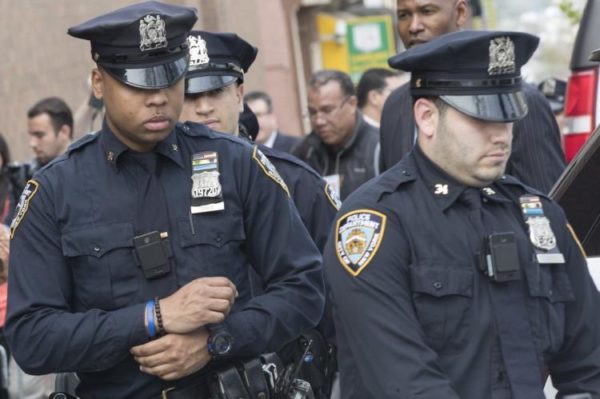NEW YORK, N.Y.—Earlier this week, I got an email from a PR person touting Mayor Bill de Blasio’s impending run for President. It included five questions he said he could answer. I decided it would be unprofessionally snarky to reply with my own answers, but now that the mayor has officially announced, here they are:
As the most populous city in the country, New York City grapples with the nation’s most intractable issues—including poverty, homelessness, criminal-justice reform, immigration—on a massive scale. Has Mayor de Blasio been up to the challenge?
—No.
What is the Mayor’s real record on homelessness? On poverty?
—Grossly inadequate, largely relying on trickle-down from luxury development.
Is New York still a “tale of two cities?”
—If you have to ask, you’re oblivious.
What should Democratic primary voters nationally—especially progressives—know about the Mayor’s record in New York?
—He’s done a few good things, but if you depend on convincing the 1% to give you money, anything you do to fight economic inequality will be token or mostly for show.
Why aren’t New Yorkers more excited about de Blasio running?
—We’ve had to live with what he’s done, or more accurately, not done, for the last 5½ years.
I write this more in sorrow than in anger. After 12 years of Michael Bloomberg, I would have welcomed a mayor committed to economic justice, to ending the “tale of two cities.” But Bill de Blasio wasn’t it. He wanted people to think he was Bernie Sanders, but he’s governed like a less competent Hillary Clinton.
To be fair, he was dealt a bad hand, inheriting a housing and homelessness crisis that had been building up for decades. The most direct way to create housing that working-class New Yorkers can afford would be to build more public housing, but a Clinton-era federal law prohibits that even if the city had the money—and the management of the New York City Housing Authority might be the most disastrous aspect of de Blasio’s tenure. The most direct way to preserve affordable housing would be to strengthen rent regulations, but those laws are in the hands of the state.
De Blasio played that hand badly, however. His “affordable housing” plan is based on trickle-down from luxury development, on rezoning neighborhoods like Inwood, Highbridge, and East New York to allow taller buildings, with 25-30% of the apartments built (by nonunion labor) required to be below market rate. Those apartments qualify as “low income” by federal standards, but cost way more than what people in the neighborhood can afford, and the luxury development will inevitably accelerate gentrification. When I write articles about housing, I put “affordable” in quotes.
While de Blasio has urged strengthening rent controls for apartments already regulated, he has declined to endorse pending bills that would expand tenant protections to unregulated buildings statewide. Speaking to WNYC’s Brian Lehrer earlier this month, he dismissed the idea as coming from a few “well intended and noble and progressive voices.”
On labor issues, de Blasio was way better than the abysmal Bloomberg, who denied city workers a raise for years when he refused to give them new contracts, and busted a 2013 strike by school-bus drivers and matrons trying to save themselves from getting knocked down to the minimum wage and no benefits. But, as is typical for centrist Democrats, his overall economic attitudes favor self-improvement, “we’re going to give people the tools to compete in the 21st-century global economy,” rather than the core principle that people like home health aides, deli clerks, metallic lathers, and taxi drivers deserve to make an adequate living—and that doing this requires taking on the 1%, not taking their money.
Where was Bill de Blasio during construction workers’ CountMeIn campaign against nonunion labor at Hudson Yards? What has he done to try to stop Charter Communications from trying to break the Spectrum cable-TV workers’ union, other than showing up at a few demonstrations, cancelling a few appearances on NY1, and launching a very slow-moving investigation of whether the company is fulfilling its contractual obligations?
I can’t say I didn’t see this coming. I met de Blasio when he was campaigning in 2013, and when I talked about how badly I and others had been whacked by the Great Recession, he told me that he would increase job training. I said we needed to create jobs that actually existed, like a 21st-century New Deal. “In a perfect world,” he replied.
“De Blasio will definitely be an improvement over Bloomberg in many areas,” I wrote after that encounter. “He won’t appoint hardline anti-tenant members to the Rent Guidelines Board, or bust a strike by school-bus matrons making $14 an hour. But how likely is he to pursue policies to reduce economic inequality that directly challenge the power of the 1 percent and that will bring down the wrath of the city’s Wall Street and real-estate power elite?… Will the most he does to bring down our too-damn-high rents be requiring a few more ‘affordable’ apartments in luxury developments?”
The nicest thing I can say about Bill de Blasio’s Presidential candidacy is that among the New York City political figures who’ve run or considered it in the last 10 years, he’s the least of five evils. The other four are Andrew Cuomo, Michael Bloomberg, Donald Trump, and Rudolph Giuliani.



